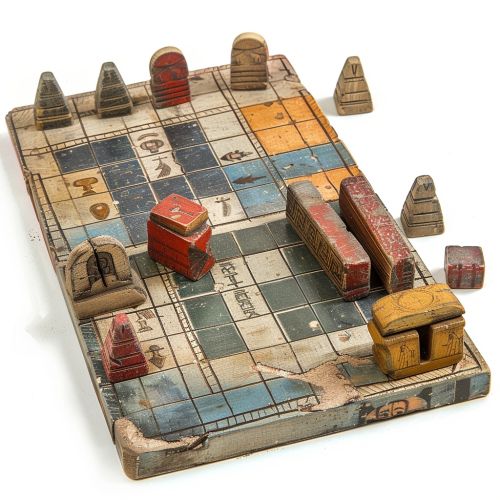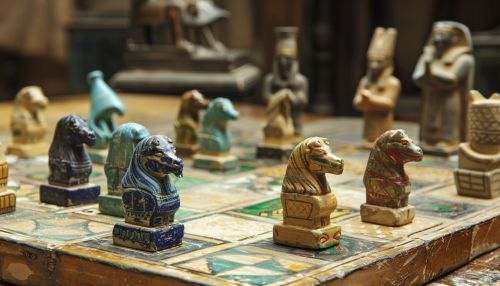Board games
History
The history of board games dates back over 5000 years. The oldest known board games trace their origin back to the first dynasty of ancient Egypt. The Royal Game of Ur, found in the Royal Tombs of Ur in Iraq, is one of the oldest known games, dating back to 2600 BC.


The game of Senet, another ancient Egyptian board game, appeared around 3100 BC. The exact rules of this game are not known, but it was popular across the Mediterranean and has been found in the tombs of Pharaohs.
In ancient India, a game known as Chaturanga developed around the 6th century AD. This game is considered to be the earliest form of chess.
In China, the game of Go was being played as early as 548 BC. This game, which involves strategy and skill, is still widely played today.
Types of Board Games
Board games can be categorized into many types, depending on their rules, the number of players, the skills required, and other factors. Some of the most common types include strategy games, chance games, and skill games.
Strategy Games
Strategy board games require players to use their strategic thinking skills to outwit their opponents. These games often involve a high level of planning and tactical decision-making. Examples of strategy board games include Chess, Go, and Risk.
Chance Games
Chance board games rely on luck rather than skill. Players may roll dice, draw cards, or spin a wheel to determine their moves. Examples of chance games include Monopoly, Snakes and Ladders, and Candy Land.
Skill Games
Skill board games require players to use their physical or mental abilities to succeed. These games often involve memory, quick thinking, or dexterity. Examples of skill games include Scrabble, Trivial Pursuit, and Jenga.
Game Design
The design of a board game involves creating the rules of the game, the game board, and any game pieces. This process often involves a great deal of testing and refinement to ensure that the game is balanced and enjoyable to play.
Game designers must consider a variety of factors when creating a board game. These include the game's target audience, the desired complexity of the game, and the theme of the game.
Board Games and Education
Board games can be a valuable tool in education. They can help to develop a variety of skills, including strategic thinking, problem-solving, and teamwork. In addition, board games can be used to teach specific subjects, such as history, geography, and mathematics.
Educational board games often involve an element of fun and competition, which can make learning more engaging for students.
Popularity and Influence
Board games have seen a resurgence in popularity in recent years. This has been attributed to a variety of factors, including the rise of "geek culture", the popularity of cooperative games, and the influence of crowdfunding platforms such as Kickstarter.
The popularity of board games has also led to the development of board game cafes, where people can gather to play games and socialize.
